 There’s no denying that when you live somewhere like the Emerson area, you need a quality heating system in place. Not only that, but you need to make sure it’s well-maintained. This means scheduling professional tune-ups for your heater each year–twice a year if you’re using a year-round heat pump system. Tune-ups help your heater work as effectively and efficiently as possible for as long as possible. Plus, tune-ups can help prevent up to 85% of the repairs a furnace or heating system may ever need in its lifetime! This is because, during your tune-up, we’ll alert you to small repair needs so you can take care of them before they turn into larger emergencies.
There’s no denying that when you live somewhere like the Emerson area, you need a quality heating system in place. Not only that, but you need to make sure it’s well-maintained. This means scheduling professional tune-ups for your heater each year–twice a year if you’re using a year-round heat pump system. Tune-ups help your heater work as effectively and efficiently as possible for as long as possible. Plus, tune-ups can help prevent up to 85% of the repairs a furnace or heating system may ever need in its lifetime! This is because, during your tune-up, we’ll alert you to small repair needs so you can take care of them before they turn into larger emergencies.
Of course, that doesn’t mean that repair needs will never crop up between maintenance appointments, and it’s important to know the signs of a heater in disrepair so you can get it fixed ASAP. One of these signs is strange noises coming from the system. But, what noises constitute “strange?” Read on to find out!

 There’s no denying that wintertime can be pretty brutal here in New Jersey. The chill in the air means that we need effective and efficient heaters in our homes. So, how’s yours working? Hopefully, you’ve already had it tuned up this fall–this is a service that’s needed once a year at least for your heater (if you’re using a heat pump system that also cools, this should be increased to twice a year).
There’s no denying that wintertime can be pretty brutal here in New Jersey. The chill in the air means that we need effective and efficient heaters in our homes. So, how’s yours working? Hopefully, you’ve already had it tuned up this fall–this is a service that’s needed once a year at least for your heater (if you’re using a heat pump system that also cools, this should be increased to twice a year).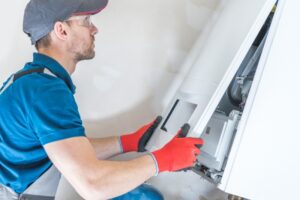 So it’s time for you to replace your current heating system. You’re considering a new furnace, but is gas the best choice for your fuel source, or should you go with an electric furnace? We can’t answer this definitively for you without hearing more about your specific needs and seeing your home, but we can certainly help you make an informed decision! Both furnace types have their pros and cons, and there are many factors to consider with both types.
So it’s time for you to replace your current heating system. You’re considering a new furnace, but is gas the best choice for your fuel source, or should you go with an electric furnace? We can’t answer this definitively for you without hearing more about your specific needs and seeing your home, but we can certainly help you make an informed decision! Both furnace types have their pros and cons, and there are many factors to consider with both types.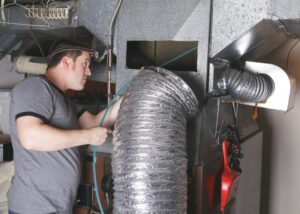 Are you utilizing a gas-powered heating system in your home? Well, then there is at least one safety risk that you really need to know about. Now, this isn’t to say that gas furnaces are automatically dangerous by nature… they aren’t. However, there is a component within your gas-powered system that could be harmful if ignored for too long–and this is the heat exchanger.
Are you utilizing a gas-powered heating system in your home? Well, then there is at least one safety risk that you really need to know about. Now, this isn’t to say that gas furnaces are automatically dangerous by nature… they aren’t. However, there is a component within your gas-powered system that could be harmful if ignored for too long–and this is the heat exchanger. Fall is officially here, which means that soon enough, you’ll be using your heating system to keep you comfy for multiple hours a day. There are many things you can do to prepare your home for the heating season. One of the key things you can do, however, is to ensure that your heating system gets a proper tune-up! This is the best way to set your heater up for success this year.
Fall is officially here, which means that soon enough, you’ll be using your heating system to keep you comfy for multiple hours a day. There are many things you can do to prepare your home for the heating season. One of the key things you can do, however, is to ensure that your heating system gets a proper tune-up! This is the best way to set your heater up for success this year.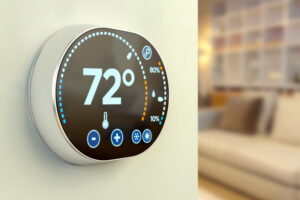
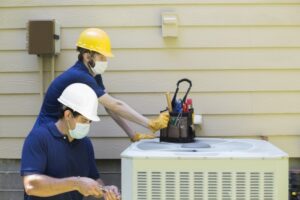 With temperatures still on the warmer side, and with the violent weather we had recently, your air conditioner’s repair needs are probably not at the top of mind, especially if that system is still running and keeping you relatively cool.
With temperatures still on the warmer side, and with the violent weather we had recently, your air conditioner’s repair needs are probably not at the top of mind, especially if that system is still running and keeping you relatively cool.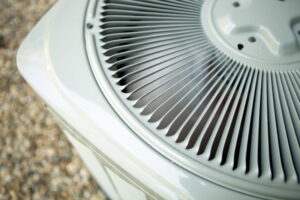 If you’re like most homeowners, you’re not going to turn down a chance to save money, right? This is especially true if we’re referring to energy and utility bills (which we are!) In addition to these utility bills every month, when it comes to your HVAC systems, you also have the cost of upkeep to consider–repairs, eventual replacement, and maintenance. This can all be understandably overwhelming.
If you’re like most homeowners, you’re not going to turn down a chance to save money, right? This is especially true if we’re referring to energy and utility bills (which we are!) In addition to these utility bills every month, when it comes to your HVAC systems, you also have the cost of upkeep to consider–repairs, eventual replacement, and maintenance. This can all be understandably overwhelming.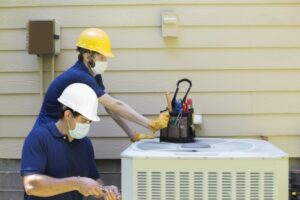 If your air conditioner is showing unusual symptoms, even if it’s running “okay,” it’s probably time to give us a call. What we run into fairly often with residential air conditioning systems is that homeowners wait until the air conditioner breaks down completely to call us. By then, whatever repair need they had likely grew into something unnecessarily expensive to repair. We say unnecessarily because the truth is, most repair needs show symptoms that could be managed far sooner.
If your air conditioner is showing unusual symptoms, even if it’s running “okay,” it’s probably time to give us a call. What we run into fairly often with residential air conditioning systems is that homeowners wait until the air conditioner breaks down completely to call us. By then, whatever repair need they had likely grew into something unnecessarily expensive to repair. We say unnecessarily because the truth is, most repair needs show symptoms that could be managed far sooner.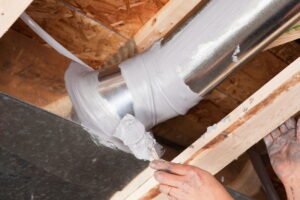 The ductwork attached to HVAC systems is one of those things that homeowners often don’t pay much attention to. After all, they’re out of sight, and therefore out of mind too, until they start to make your energy bills skyrocket.
The ductwork attached to HVAC systems is one of those things that homeowners often don’t pay much attention to. After all, they’re out of sight, and therefore out of mind too, until they start to make your energy bills skyrocket.